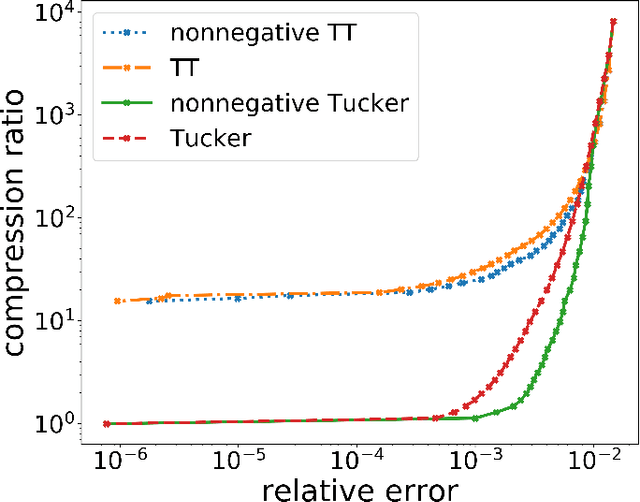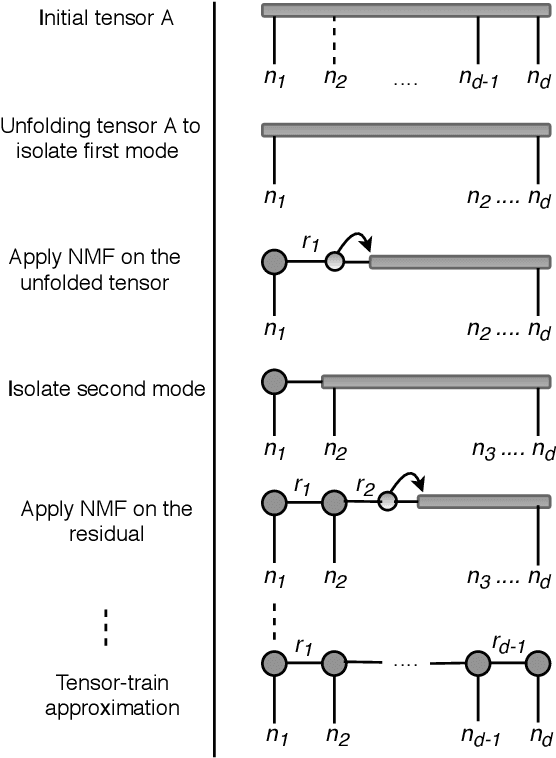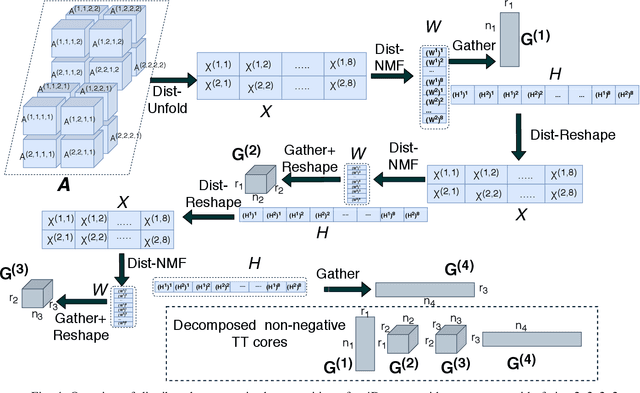Distributed Non-Negative Tensor Train Decomposition
Paper and Code
Aug 04, 2020



The era of exascale computing opens new venues for innovations and discoveries in many scientific, engineering, and commercial fields. However, with the exaflops also come the extra-large high-dimensional data generated by high-performance computing. High-dimensional data is presented as multidimensional arrays, aka tensors. The presence of latent (not directly observable) structures in the tensor allows a unique representation and compression of the data by classical tensor factorization techniques. However, the classical tensor methods are not always stable or they can be exponential in their memory requirements, which makes them not suitable for high-dimensional tensors. Tensor train (TT) is a state-of-the-art tensor network introduced for factorization of high-dimensional tensors. TT transforms the initial high-dimensional tensor in a network of three-dimensional tensors that requires only a linear storage. Many real-world data, such as, density, temperature, population, probability, etc., are non-negative and for an easy interpretation, the algorithms preserving non-negativity are preferred. Here, we introduce a distributed non-negative tensor-train and demonstrate its scalability and the compression on synthetic and real-world big datasets.
 Add to Chrome
Add to Chrome Add to Firefox
Add to Firefox Add to Edge
Add to Edge